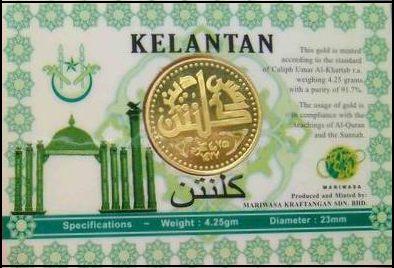malayloveislam
IB Veteran
- Messages
- 700
- Reaction score
- 57
- Religion
- Islam
Bank Islam
Bank Islam New Brand

www.brandsoftheworld
Old Brand Of Bank Islam

pic: www.post-buzz.com
Bank Islam emerged as Malaysia’s maiden Shari’ah-based financial institution when it commenced operations in July 1983. Since then, Bank Islam has become the symbol of Islamic banking in Malaysia. Its vision to be “The Global Leader in Islamic Banking” illustrates its status as the flag bearer of the country’s Islamic financial services industry.
official site: http://www.bankislam.com.my/
From only RM80 million initially, Bank Islam’s paid-up capital swelled to RM1.73 billion as at June 2009, which was instrumental in making possible the growth of its assets and the implementation of its expansion programmes.
Through a growing network of branches and self-service terminals which stand at 93 locations and 656 terminals nationwide, Bank Islam parades a comprehensive list of more than 50 innovative and sophisticated Islamic banking products and services, comparable to those offered by its conventional counterparts.
From the traditional financing, savings and investment types of products exclusively for individual customers in the early years of establishment, the range of Bank Islam’s Shari’ah-based financial products, services and business solutions has significantly expanded to cater to the fast-changing financial needs of all categories of customers including those related to micro financing, wealth management, capital market, treasury and structured products.
Being a pioneer, Bank Islam has played a leading role in promoting the expansion of Malaysia’s brand of Islamic finance into other markets, especially in the region. This has helped develop Bank Islam into a well-established and universally recognised brand. As the number of local and global financial services continues to increase, Bank Islam remains keenly aware of the pioneering role it must continue to play.
As a testament of this pioneering role, Bank Islam was awarded the Reader’s Digest Platinum Award for being the Most Trusted Brand for Islamic Financial Services. With the entrusted belief, Bank Islam is on its way in becoming “The Global Leader in Islamic Banking” and continues to remain guided by the excellent pioneering work by its predecessors, Malaysia’s ambition to be an international Islamic financial centre, the success of its turnaround efforts and the challenge from its competitors.
For more information on Bank Islam products and services, call Bank Islam Call Center at 6-03-26 900 900
Official Site: http://www.bankislam.com.my/
Bank Islam New Brand

www.brandsoftheworld
Old Brand Of Bank Islam

pic: www.post-buzz.com
Bank Islam emerged as Malaysia’s maiden Shari’ah-based financial institution when it commenced operations in July 1983. Since then, Bank Islam has become the symbol of Islamic banking in Malaysia. Its vision to be “The Global Leader in Islamic Banking” illustrates its status as the flag bearer of the country’s Islamic financial services industry.
official site: http://www.bankislam.com.my/
From only RM80 million initially, Bank Islam’s paid-up capital swelled to RM1.73 billion as at June 2009, which was instrumental in making possible the growth of its assets and the implementation of its expansion programmes.
Through a growing network of branches and self-service terminals which stand at 93 locations and 656 terminals nationwide, Bank Islam parades a comprehensive list of more than 50 innovative and sophisticated Islamic banking products and services, comparable to those offered by its conventional counterparts.
From the traditional financing, savings and investment types of products exclusively for individual customers in the early years of establishment, the range of Bank Islam’s Shari’ah-based financial products, services and business solutions has significantly expanded to cater to the fast-changing financial needs of all categories of customers including those related to micro financing, wealth management, capital market, treasury and structured products.
Being a pioneer, Bank Islam has played a leading role in promoting the expansion of Malaysia’s brand of Islamic finance into other markets, especially in the region. This has helped develop Bank Islam into a well-established and universally recognised brand. As the number of local and global financial services continues to increase, Bank Islam remains keenly aware of the pioneering role it must continue to play.
As a testament of this pioneering role, Bank Islam was awarded the Reader’s Digest Platinum Award for being the Most Trusted Brand for Islamic Financial Services. With the entrusted belief, Bank Islam is on its way in becoming “The Global Leader in Islamic Banking” and continues to remain guided by the excellent pioneering work by its predecessors, Malaysia’s ambition to be an international Islamic financial centre, the success of its turnaround efforts and the challenge from its competitors.
For more information on Bank Islam products and services, call Bank Islam Call Center at 6-03-26 900 900
Official Site: http://www.bankislam.com.my/








